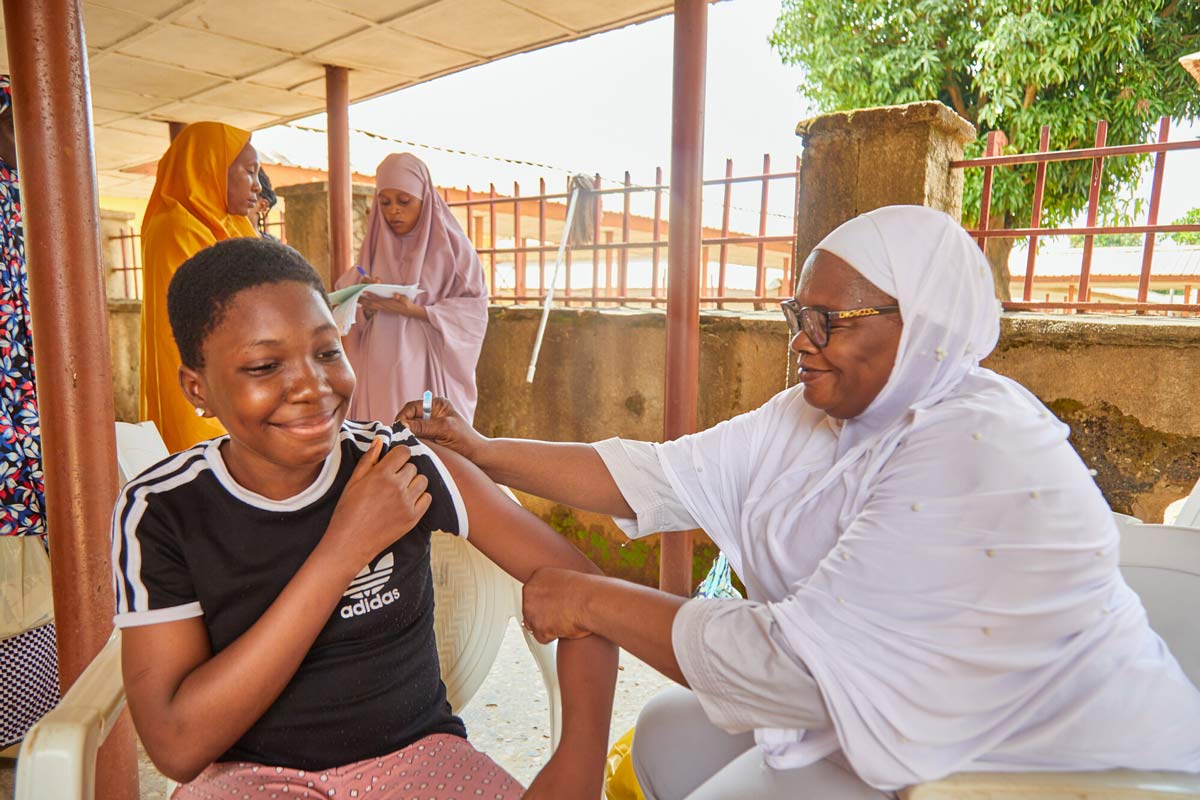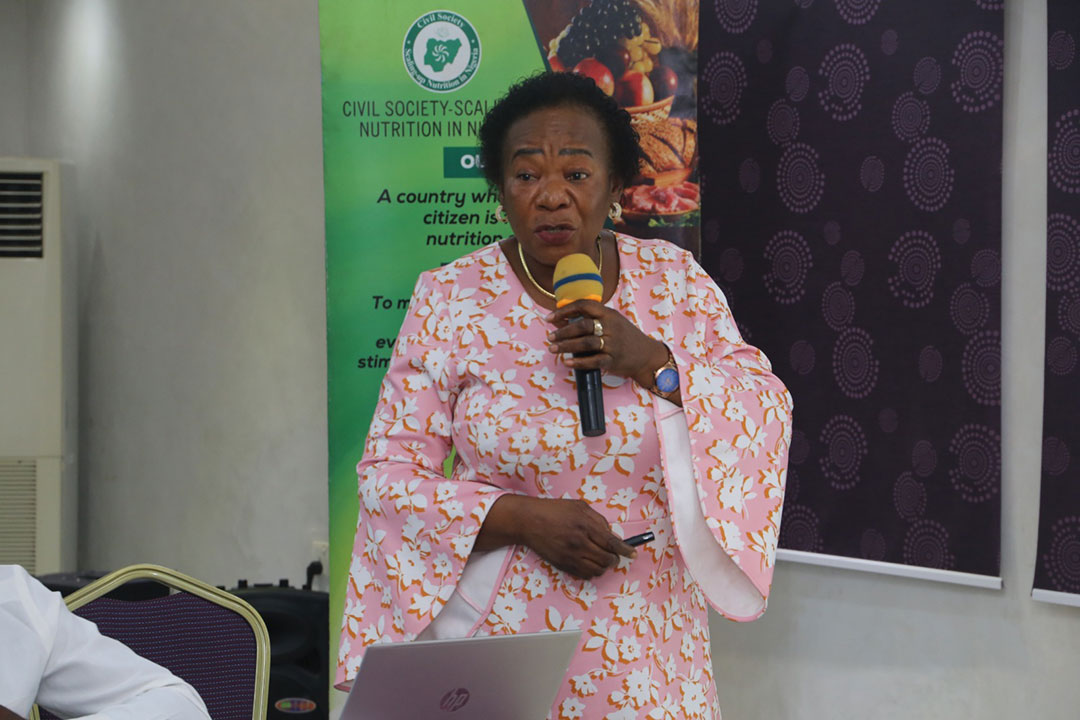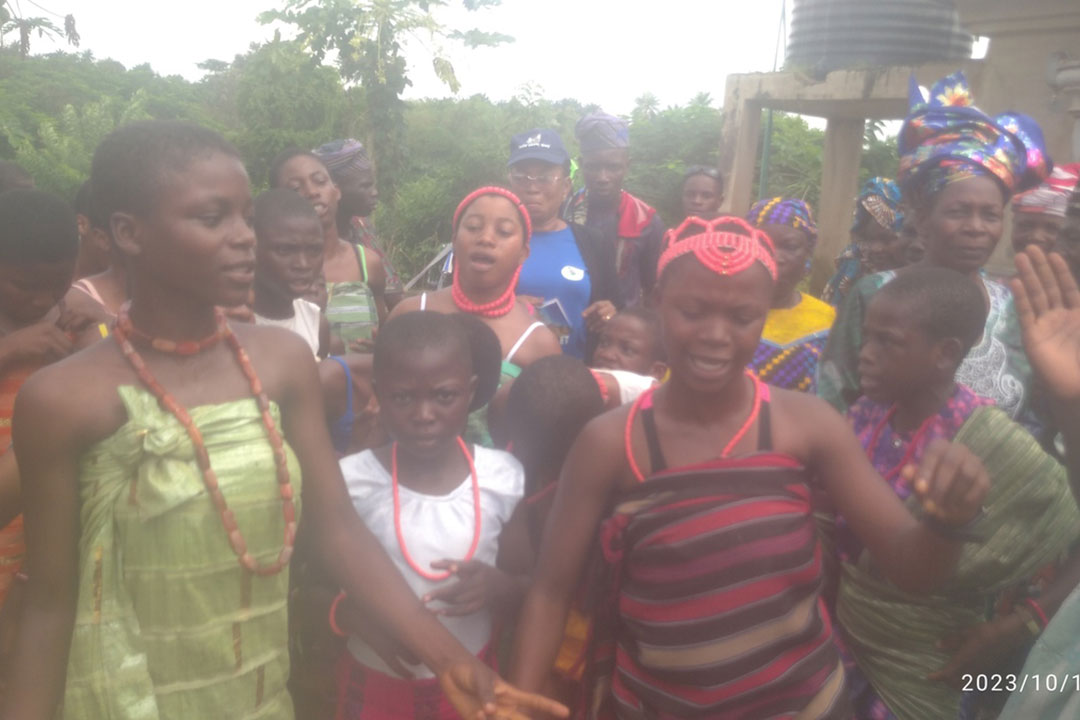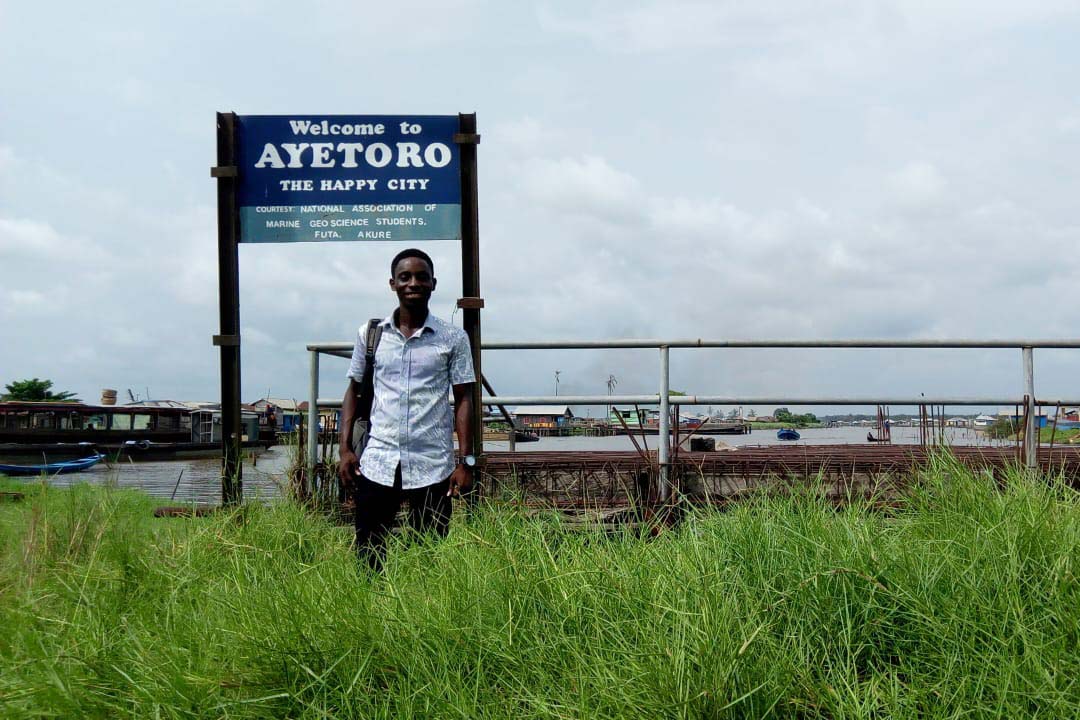How tricycle ambulances are saving mothers and their babies in Nigeria’s Niger State
In Niger State, one in every 95 women dies during pregnancy or childbirth. To help roll back that trend, three-wheeled delivery vehicles are connecting women in hard-to-reach communities with health centres.
- 13 July 2023
- 5 min read
- by Royal Ibeh
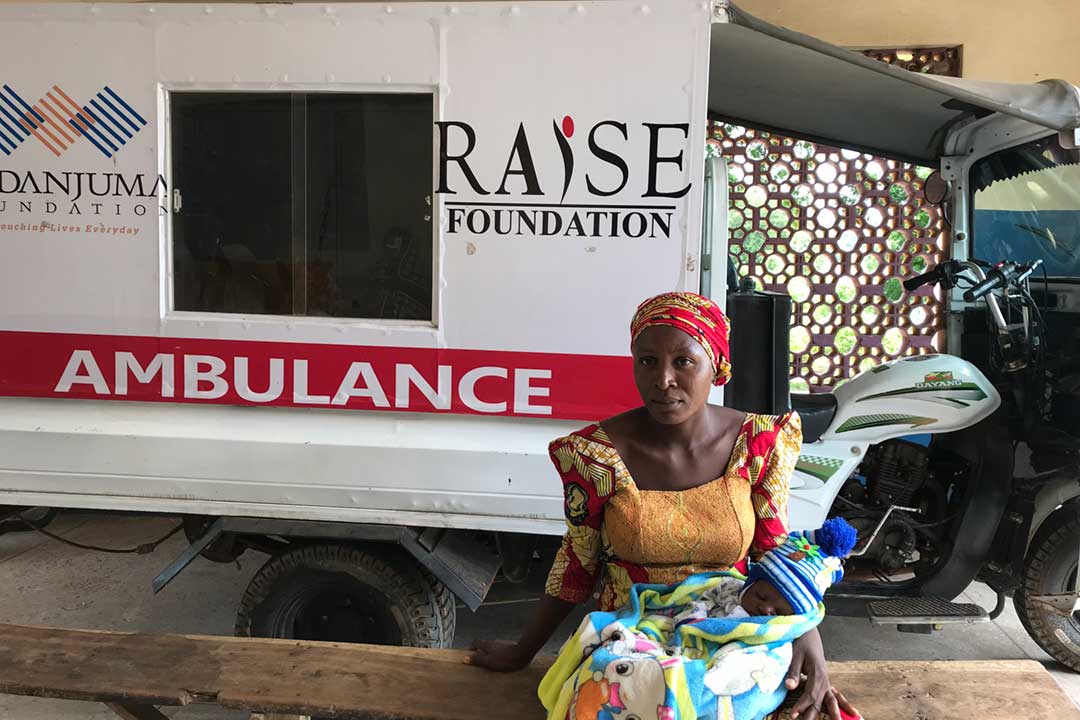
At around 09:00 on 25 June 2023, Rachel Jacob was in agony: she was in labour with her second child, and didn't know how she was going to get to the clinic for help.
Jacob lives in Toroko Village, a remote area in Gbako Local Government Area of Niger State, Nigeria. To access health care, residents here typically embark on an hour-long journey to the Rural Health Centre, Lemu, in Lemu town.
Nigeria contributed 12% of the world’s 4.5 million maternal, newborn deaths, and stillbirths in 2020 – a total of 540,000 lives lost – even while it contributed just 6% of the world’s live births.
But Jacob was alone. Her husband and other neighbours had left for their farms. "I attempted to call my husband when I started feeling labour pain, but I realised my phone had run out of battery.
"I thought I was going to die that day with the pain, because the labour was quick and then I feel a dilatation at my private part like the baby is near and will fall down. So, I started screaming," Jacob recalled.
A neighbouring village's elder called Mallam Ali heard her cries. He dialed a number, and before too long, a white, three-wheeled truck – the sort you might expect to be delivering milk, rather than babies – chugged into view. It was a "tricycle ambulance", and it had come to transport Jacob and her soon-to-arrive infant to safety.

Credit: Royal Ibeh
Birth and death meet too often
Nigeria contributed 12% of the world's 4.5 million maternal, newborn deaths, and stillbirths in 2020 – a total of 540,000 lives lost – even while it contributed just 6% of the world's live births.
In Niger State, one in every 95 women dies during pregnancy or childbirth, amounting to 1,934 deaths from obstetric issues each year, according to RAiSE Foundation, a local non-governmental organisation focused on in maternal and child health.
Many problems underpin those tragic figures. One of them, RAiSE Foundation found, was delays in especially rural-based expectant mothers accessing health care during delivery.
Have you read?
To help remedy that, in 2017 RAiSE launched an intervention they call the Community-Based Emergency Transport Scheme. It's more often simply called the tricycle ambulance service: a fleet of three-wheeled mini-trucks – picture an oversized tuktuk crossed with a van – dedicated to conveying expectant mothers from remote communities to health centres for safer deliveries.
Pregnant, and stuck
The scheme was birthed after the foundation surveyed women of reproductive age in over 30 health facilities in 2015, to learn more about challenges in accessing care, said RAiSE communication officer, Ruth Jiya.
With the tricycle ambulance intervention, which began in 2017, coupled with the distribution of delivery kits by RAiSE Foundation to expectant mothers who attained 70% antenatal care attendance at our facility, it has indeed saved a lot of lives.”
– Moses Yisa, Officer-in-Charge of Rural Health Centre Lemu
More than half of women of child-bearing age used unskilled birth attendants, they found, which decreases the chance of survival of mothers and newborns, Jiya said.
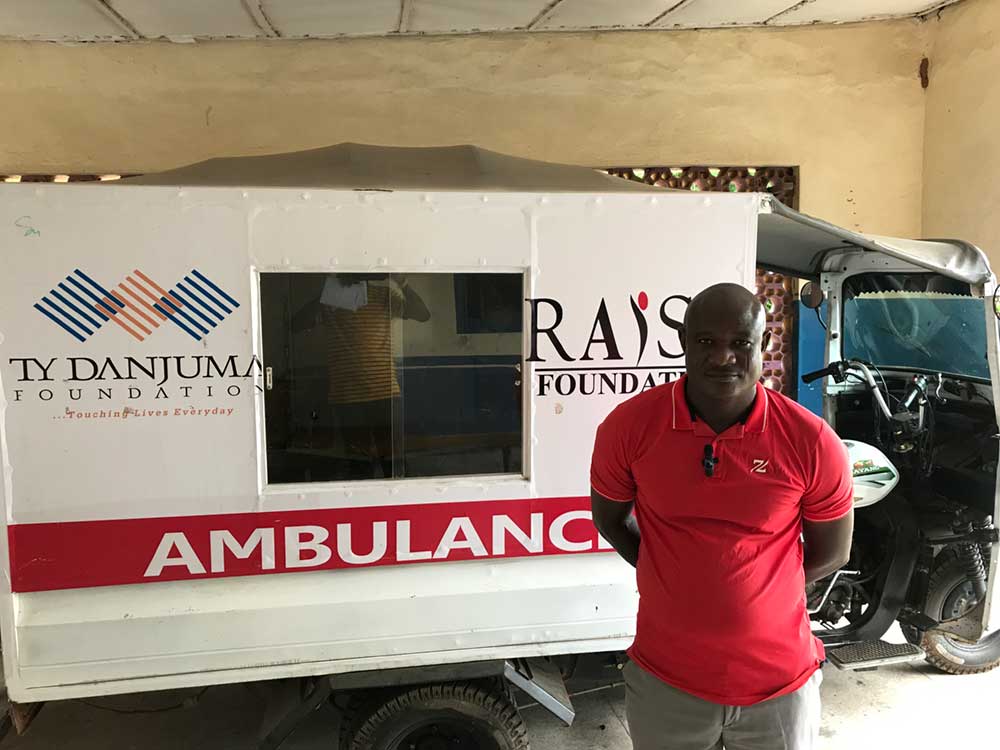
Credit: Royal Ibeh
The Officer-in-Charge of Rural Health Centre Lemu, Moses Yisa, said his facility connects with more than 50 rural communities for health care, but many pregnant women find it difficult to make it to the clinic during labour and before.
"Before the intervention, many of the women didn't have interest in coming for antenatal care and delivering their babies in the hospital due to the inaccessibility. However, with the tricycle ambulance intervention, which began in 2017, coupled with the distribution of delivery kits by RAiSE Foundation to expectant mothers who attained 70% antenatal care attendance at our facility, it has indeed saved a lot of lives," Yisa said. "With the tricycle ambulances on ground, we decided to [encourage] all pregnant women who attend antenatal care at the PHC, to call for any case of emergency and the ambulance will go and convey them to the facility."
Unreachable no more
"It was Mallam Ali that helped me to contact the Rural Health Centre in Lemu for emergency transportation," recounted Jacob. "They arrived with the tricycle ambulance and took me to the centre, where I delivered safely."
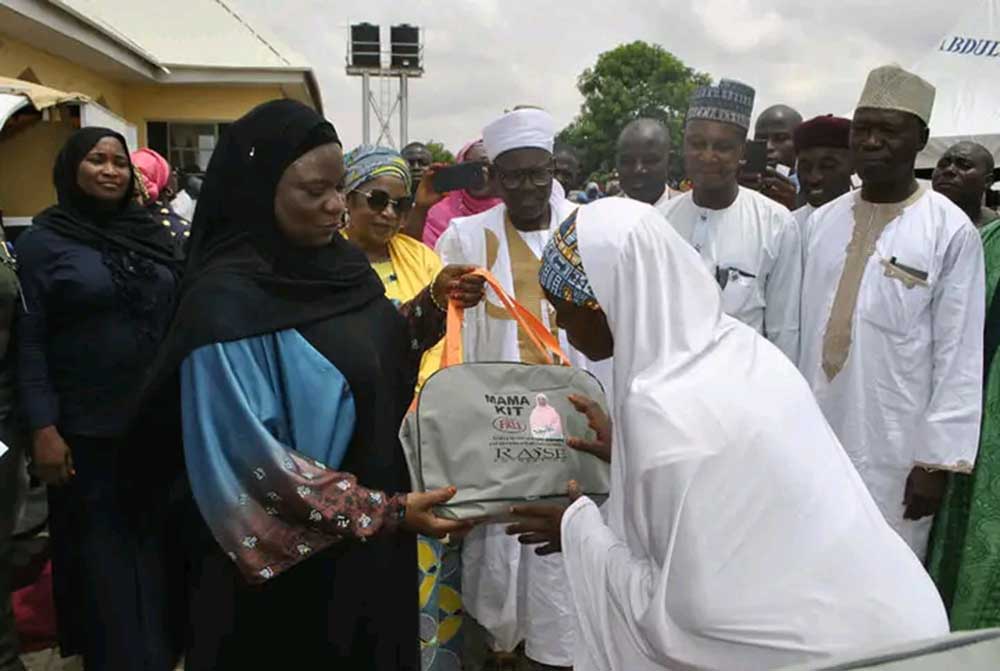
Credit: Royal Ibeh
Before the ambulance service launched, the number of antenatal patients arriving at the clinic was low, said Yisa. "Only 80 pregnant women would come for antenatal care. But since the intervention of the ambulance and delivery kits came, the PHC has been having over 200 antenatal patronages every month. We now have improved delivery services. For instance, delivery was just 10 to 15 every month, but now we carry out about 40 deliveries every month.
"The rate of death of pregnant mothers and stillbirths has reduced in this facility through the help of the intervention of ambulance and mama kits (delivery kits) the foundation has been giving us," he explained.
“They arrived with the tricycle ambulance and took me to the centre, where I delivered safely.”
– Rachel Jacob, mother of two
Lemu is not the only PHC benefiting from this initiative. Today, there are tricycle ambulances serving mothers in diverse parts of the state, including in the catchment areas of Beji, Doko, Fuka, and Kabogi Health Centres in the local governments of Gbako, Bosso, Lavun, Munya, and Mashegu.
The mama kits are designed to be deployed by a skilled birth assistant. "All that is needed for delivery is contained in the mama kits we give to them. There are pads, disinfectant, baby towel, cord clamp, mucus extractor, chlorhexidine for the cord of the baby, preventive dose for PPH, misoprostol tablet to control bleeding, and many other items required for skilled birth," RAiSE's Ruth Jiya said. The foundation's services are free of charge.
To date, Jiya says, the foundation has supported more than 16,000 mothers and newborns with delivery kits and medical care within 24 hours of delivery. She added that RAiSE's intervention has also helped more than 10,000 babies under the age of one get fully immunised against vaccine-preventable diseases.
